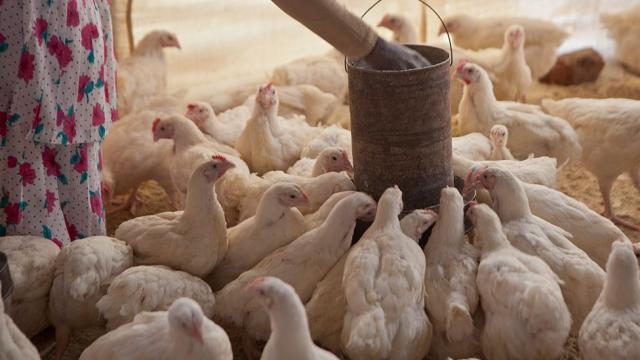
More than 45,000 hens have been slaughtered, burnt and buried in southern Mozambique to prevent the spread of bird flu, officials say.
The birds had been imported from neighbouring South Africa, which has been hit by an outbreak of the disease.
The outbreak has now spread to Mozambique’s district of Morrumbene in the southern Inhambane province.
Authorities are trying to contain it as fears grow that it could spread to other parts of the country.
Bird flu is an infectious disease of poultry and wild birds.
It can spread through entire flocks of domestic birds within a matter of days, through bird droppings and saliva, or through contaminated feed and water.
The outbreak has led to a shortage of eggs and chickens, and a sharp rise in prices in recent days, in Mozambique, including in the capital Maputo.
The average price of chicken has nearly doubled from 350 Mozambican metical ($5; £4) to 600, while the price of a dozen eggs has shot up from 100 to 150 metical.
The 45,000 incinerated hens had been in contact with chickens infected by bird flu in South Africa, said Mozambique’s National Director of Livestock Development Américo da Conceição.
The hens had been brought to Mozambique to lay eggs.
South Africa has been grappling with one of its worst bird flu outbreaks, forcing poultry farmers to kill seven million egg-laying hens, which amounts to 20-30% of the country’s entire stock, according to South African Poultry Association.
The outbreak has also caused a shortage in the supply of eggs and chicken meat in the country.
Mr Da Conceicao said that Mozambique has banned the importation of chickens and their derivatives from South Africa, including eggs and chicken feed.
The government has also stopped the circulation of chickens, eggs and animal feed from Morrumbene, the epicentre of the outbreak, to other parts of Mozambique.
Authorities said the hens were burnt to prevent people taking and eating them after they were slaughtered.

